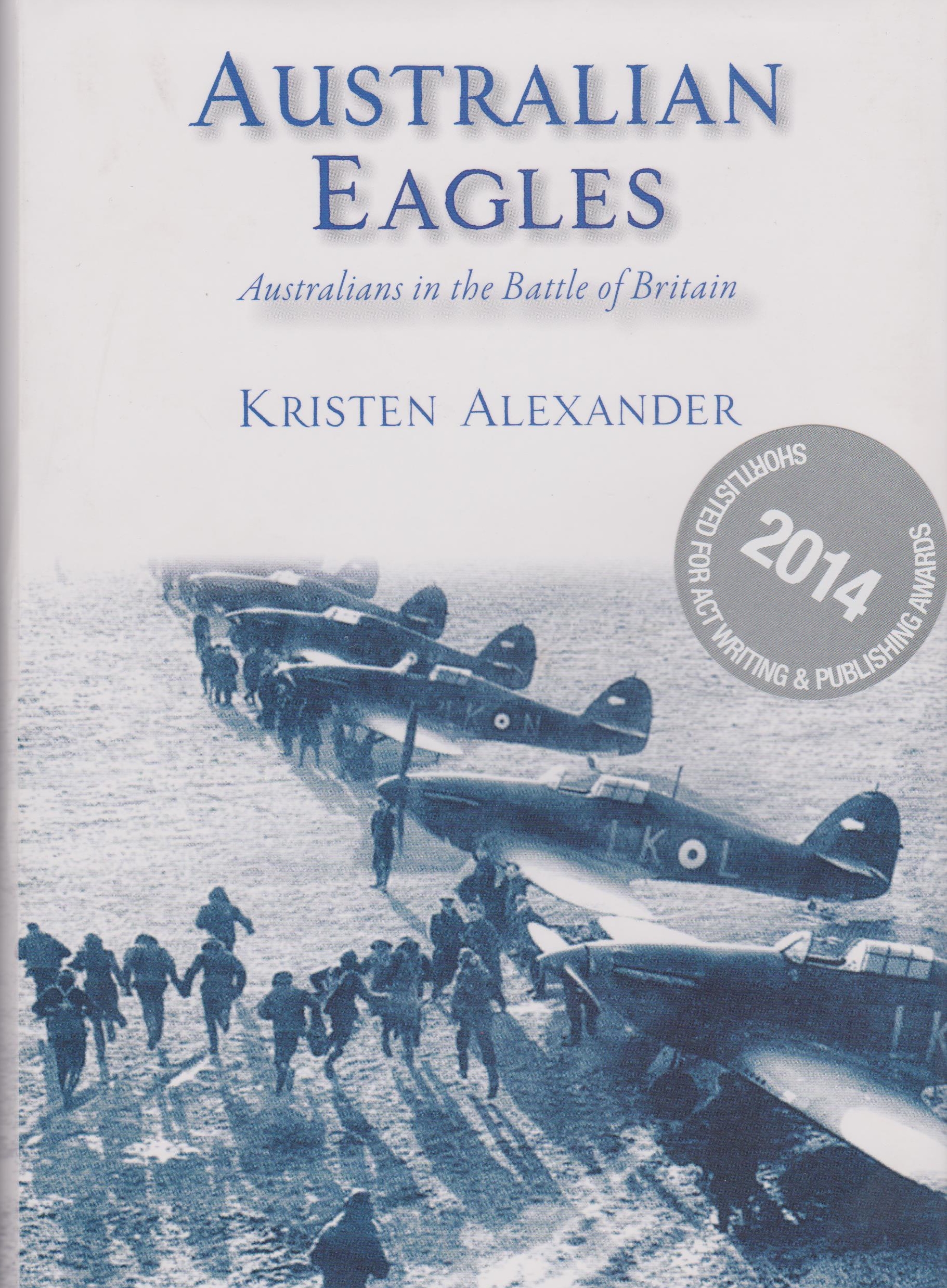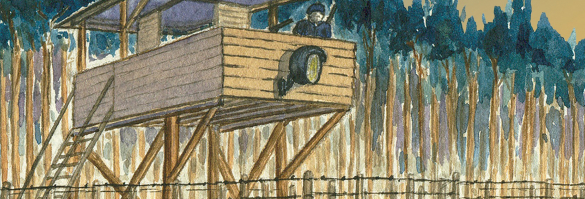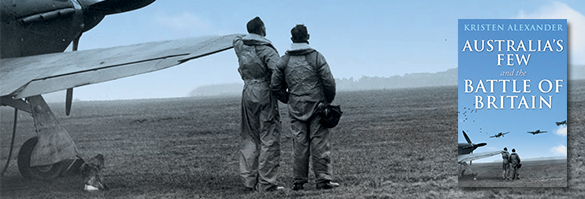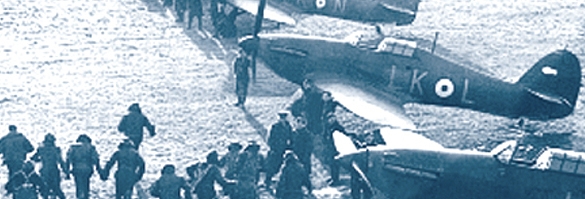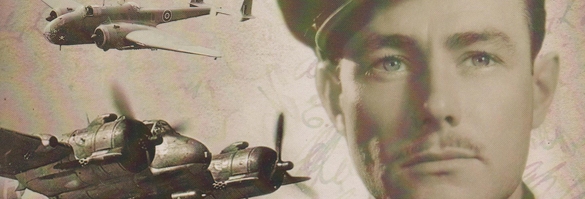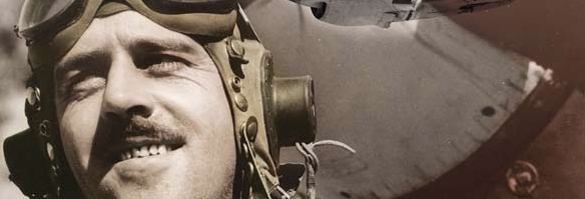Australian Eagles. Australians in the Battle of Britain

Australian Eagles was shortlisted in the non-fiction category of the 2014 ACT Writing and Publishing Awards.
Judges Notes: Highly Commended. Kristen Alexander writes extremely well and her experience in writing about aviation history is evident in her confident handling of the material. Her thorough research provides detailed and poignant portraits of six Australian pilots who fought in the Battle of Britain. One of the strengths of the book is the commitment to telling the personal stories of the men, and not simply the details and technicality of their missions, through the inclusion of many excerpts from the diaries of the pilots themselves, accounts of the pilots’ personal relationships, as well as the struggle for those who wait at home. Beautifully presented, with very good layout and clear well produced photographs, especially considering that some of them are quite old.
Australian Pilot, Volume 67, No. 1, February-March 2014. Ain't no chick flick. By Kathy Mexted
Not a review but an article about me. Talks about how I got into aviation writing and tells the story behind one of the stories that will be included in Australia's Few and the Battle of Britain (NewSouth September 2014). Also says some good things about Australian Eagles.
Journal of the Royal Australian Historical Society, Volume 99, Part 2, December 2013. By Group Captain Doug Roser
Australian Eagles is a particularly well-researched book which tells the stories of six pilots who served in the Battle of Britain – five Australians and one British RAF officer who retired in Australia but maintained his passion for flying and the commemoration of the Battle of Britain. ...
Like many of my generation I have been reading books and material on World War II, including the Battle of Britain, since I was very young and before I joined the RAAF as an apprentice. I also served in the RAF on exchange and participated in the Battle of Britain commemoration ceremonies in England. ...
Against this background I was most surprised at how much I enjoyed this book, as its scope is relatively narrow in that its focus is the stories of six pilots. Kristen Alexander’s research, her understanding and presentation of the strategic issues embedded in the battle and the sensitivity in presenting the personal stories of the pilot make the book an engrossing and, being only 187 pages, a very easy read. It has left a lasting impression on me.
While the scope is narrow it does provide the deepest possible insight into the type of young men who volunteered to serve so readily in World War II and who, in the process, had to transfer to the RAF to serve in Britain. It not only covers the areas in which they lived, their schools, their early careers but also shares with the reader the pride of the families in these young men as well as the grief when they were lost.
The maps and general illustrations add much to the book but the photos of the young men in the service and with their families are treasures and add so much to the stories. Alexander has also captured the actual passion they had for flying and also describes accurately the environment in which the Battle of Britain was fought, the overall strategies of both sides as well as the tactics used by the fighter pilots.
Of particular interest to me also is the way in which the author researched and presented the training environment for these young men as well as the camaraderie of service life and the teamwork and mateship which is so fundamental to any military operations. It is extremely well researched and presented in a most readable style which is often not the case with books on the history of military operations. It is very accurate, readers will live with the pilots whose stories are told and will appreciate the courage with which they faced their most daunting challenges. ...
Australian Defence Force Journal No. 192, 2013 by Dr Mark Lax
‘I have a knack of getting into and out of trouble’. So wrote Desmond Sheen in a letter to his parents after his second successful bale-out of a damaged Spitfire in 1940. Sheen was an Australian fighter pilot who flew in the Battle of Britain and was one of the survivors. He later recalled he had about 700 hours in fighters but only 20 minutes he would never forget. This was a common theme.
Each year on ‘Battle of Britain Day’, on the weekend closest to 15 September, veterans and representatives of today’s RAAF, and their families, gather in Hobart to commemorate the sacrifice of ‘the Few’ in the Battle of Britain. There is also a service at the Australian War Memorial. But why do we still remember a distant air battle with such devotion and ceremony?
Officially, 2949 pilots from Britain, the Commonwealth and other allied nations flew in the Battle of Britain, with 544 being killed. However, less than 40 Australians fought in the battle, 13 of whom were killed. Compared to the Australian contribution to the land campaigns in North Africa and Southeast Asia, and the efforts of the men of Bomber Command, such ceremony seems hardly relevant.
Perhaps it is the connection many Australian still feel to the ‘Mother Country’ and how we rose to her defence in her ‘darkest hour’. Perhaps it is the Australian characteristic of cheering for the underdog which appeals—or our respect for the hero who overcomes impossible odds. Maybe it was because the battle was the first time in history that the outcome depended solely on air power. Whatever the reason, those heroes of ‘the Few’ remain in our collective consciousness and we still remember them.
Australian Eagles: Australians in the Battle of Britain by Canberra author Kristen Alexander provides a further clue. The book is a biographical collection covering the lives of six Australian pilots who fought in the battle. Through these vignettes, we come to realise these young men were just like the many others who rose to the call. Their stories contain all the excitement, the expectations and fears held by that generation as they went off to a distant war. Through this book, they are portrayed as very human, not poster boys—they are just like today’s young men and women who go off to a distant war.
This book is Kristen Alexander’s third foray into airmen biography and Australian Eagles follows her books on RAAF World War 2 airmen Clive Caldwell and Jack Davenport. Both previous publications were well received and Australian Eagles should be likewise. Alexander’s sometimes forensic detail about her subjects allows the reader to fly with them in life and, in some cases, follow them down to their death. The book is well researched and a moving tribute to a few of ‘the Few’ and I thought was pitched at the right level and tone. Each is a very human story and often quite emotional. You cannot help be touched by the sense of loss felt by each family when told their loved one would not be coming home.
Each of the six has their story told using official records, personal documents and letters, and family interviews. Importantly for the stories, Alexander has taken great pains to trace the aftermath of the loss of four of the men and, in so doing, brought out the human tragedy of a wasted youth. I found John Crossman’s story particularly moving as Alexander describes the family reaction to his death and the drawn-out aftermath, not just with grief, but with the need to clear John’s debts with the RAF before personal items could be returned. In Crossman’s case, this took some time but, today, visits continue each year to his grave in Chalfont St Giles in Buckinghamshire.
Apart from Dennis Newton’s A Few of ‘the Few’ published in 1990 and released to coincide with the 50th anniversary of the battle, very little has been written specifically about Australians in the battle. Kristen Alexander’s Australian Eagles is thus a fresh reminder of their service and sacrifice and adds to the rich biography we have of Australian military airmen.
Why do we still remember the Battle of Britain? Perhaps the best answer was given by Des Sheen, another of Alexander’s ‘Eagles’, so many years ago when he said: ‘It is not enough to celebrate the anniversary of the Battle of Britain. We must honour its obligations, particularly to the airmen who won this and other battles leading to victory’. I am sure he was right.
For those interested in RAAF history and the Battle of Britain, this book is not only well written and a great read, it is a must. Highly recommended.
*****
Wartime Issue 64, Spring 2013 by Michael Nelmes
The new Battle of Britain London Monument records in bronze 32 Australian airmen; in Australia, an additional three are officially recognised as participants in the battle. Ten were killed in action. This latest work from Kristen Alexander tells the stories of five of these flyers and one ‘adopted’ Australian. Four of them, Jack Kennedy of Sydney, Stuart Walch of Hobart, Dick Glyde
The Battle of Britain itself needs little introduction, except perhaps to note Winston Churchill’s assertion that “the survival of Christian civilisation” depended upon its outcome. Were it not for ‘the few’ Royal Air Force fighter pilots sent up against the onslaught of German air attacks through the summer and autumn of 1940, Britain may well have fallen. ...
Alexander has chosen some lesser-known pilots; the biographies are brief, reworked from [her previously published articles]. But in a short 25 pages or so for each, she has achieved a good balance of personal background, historical context and the post-war lives of the men, focusing on each man’s part in the battle. Wartime letters and other family records, supported by interviews with family members and with James Coward, form the basis of the personal side of the stories. The photographs are well-chosen and include images of some poignant artefacts: the ripcord handles from the two parachutes which saved Sheen’s life, and his bullet-holed leather earphone cover, to name a couple.
As former Chief of Air Force Air Marshal David Evans AC DSO
*****
Aviation Historical Society's September newsletter (Volume 29, No 3)
This book tells the story of six Australians who flew in the Battle of Britain. None of the six airmen, Jack Kennedy, Stuart Walch, Dick Glyde, DFC, John Crossman, Des-mond Sheen, DFC and Bar, and James Coward, are household names but they were just six of "The Few". The book is well researched and illustrated and gives a very good insight to the short lives of the four that did not survive the battle.
*****
Westweekend magazine of the West Australian on 10 August 2013 by Derry McCarthy
In a clear labour of love, Alexander has compiled biographies of six Australian airmen who took part in the Battle of Britain. Piloting Spitfires and Hurricanes, these dauntless youngsters took on the might of the German Luftwaffe after just a handful of flying lessons. Their often poignant histories—including that of Richard Glyde DFC, an alumnus of Perth’s Guildford Grammar School—describe how ordinary lads who loved flying became embroiled in the conflict. Alexander brings to life the stories of these heroes in a handsomely produced and generously illustrated volume.
*****
The Sunday Tasmanian on 4 August 2013 by Reg A Watson
I first met the author, Kristen Alexander, at the unveiling of a plaque at Hutchins School to commemorate an old school boy, Stuart Crosby Walch. Stuart was the only Tasmanian to be killed in the Battle of Britain. With the annual ceremonies looming for that historic event mid September, the release of Australian Eagles is timely.
Kristen has listed and written on six Australians, they being Jack Kennedy, Dick Glyde DFC, John Crossman, Desmond Sheen DFC and Bar, James Coward and our own Stuart Walch. The author is the Australian representative for the Battle of Britain Historical Society. The Battle was fought over the skies of England in the summer and autumn of 1940. Those pilots who participated were called by Winston Churchill “The Few”. Out of the 2940 who fought, 36 were Australians. Of Fighter Command, 544 airmen were killed, among them were thirteen Australians.
The chapter on Stuart Crosby Walch is number two of six. Walch was born 16th February 1917 in Hobart. He was of the prominent business family of the city. Outstanding at sport he was a well known figure around town in the mid 1930s and joined the RAAF early in 1936 and sailed to England to further his flying career. He was there when British Prime Minister Neville Chamberlain advised that “this country (England) is at war with Germany”. Stuart would never see Tasmania again. Later he was posted to 238 Squadron based at Tangmeere as Flight Commander. It was in July 1940 that Stuart saw his first action. Flying a Hurricane fighter he began to get credited with kills (downing of enemy craft). Within three months of joining 238, the 23 year old, became known as being the “father” of his squadron and took on the most dangerous jobs himself. On the 11 August 1940 with Stuart leading the squadron, he encountered an enemy force of more than 150 aircraft. It was his 55th sortie. Undaunted by the overwhelming numbers they met the onslaught, but he and his section leader plummeted into the waters five or so miles south of Swanage. He had accounted for two destroyed enemy aircraft, two shared destroyed, one unconfirmed shared destroyed and one damaged. The lost of the young Tasmanian, naturally, was devastating for his family.
Like all airmen his name is recorded on the Air Force memorial at Runnymede (England). He is also remembered on The Hutchins School’s Second World War Roll in the Chapel of St Thomas. On 21st September 2011 Hutchins was presented with a Battle of Britain Historical Society School Plaque to honour Stuart. This was the first and to date, the only School Plaque presented in Australia. Stuart’s status is being the only Tasmanian on the Battle of Britain Honour Roll in Westminster Abbey (London).
Kristen has produced a wonderful read. It is an important book in that those six who served and died are now to be remembered more fully. Tasmanians will be proud to know that one of our own paid the supreme sacrifice over the skies of Great Britain. Her research is good and her style is easily read. Comes fully recommended.
*****
Sabretache. The Journal and Proceedings of the Military Historical Society of Australia Vol LIV No 2, June 2013 by Peter Ingman
Australian Eagles comprises the stories of six Australian fighter pilots who fought in the Battle of Britain. There are no lengthy dissertations on the rise of National Socialism or the design history of the Spitfire; Alexander gets straight down to business after a brief reminder of the importance of the Battle of Britain, including Churchill’s famous words, ‘Upon this battle depends the survival of Christian civilisation...’. So it was that an extraordinary weight was placed on the shoulders of ‘The Few’—generally young men barely out of school.
The Australian pilots in the Battle of Britain were indeed just a few (around 30—the number varies depending on your definition of ‘Australian’) among ‘The Few’. These men had joined the air force during peacetime so their stories immediately differ from the typical WWII pilot biography. Some trained at Point Cook but then joined the RAF in short service commissions—so there was a cadre of Australian fighter pilots flying years before the first fighter squadron would be formed in Australia.
This book is about the less celebrated pilots. ... Four of these pilots were killed in 1940, although there were still another five hard years of war ahead—five years of significant events that would further obscure this period. It is touching to see how these men are remembered today—particularly by their school communities, but also by others. Only the most passionate of researchers would explore these relatively brief stories to find something about the nature and character of these men—and Alexander does just that. Underlining these difficulties, there is an ‘interlude’ describing the dearth of records concerning one of the pilots, Dick Glyde, who is barely remembered in squadron records and even excluded from certain accounts.
Alexander has her own style as an aviation writer. She does not try and put the reader in the cockpit, nor are actions embellished with detail that can only have been assumed. This is a difficulty for aviation writers: often complex events are accounted for very tersely in squadron records or logbooks. It is easy, then, to borrow from the experiences of others and in doing so overshadow the primary character concerned. Alexander does not go down that path. In fact by focusing on some relatively brief careers she gives her subjects a certain humility—and as a result treats them with due reverence.
For this reason the book is in many ways a refreshing angle on this subject. It reminds us that there is more to fighter pilots than just their tally count. In particular, all of those who lost their lives leave behind a rich legacy in their communities and family which lives on to the present day.
*****
Justin Sheedy on his Goodbye, Crackernight blog.
Sometimes history doesn’t seem real. Especially when it seems too dramatic, too tragic, too surreally heroic to be true. In her latest book, ‘Australian Eagles – Australians in the Battle of Britain’, author Kristen Alexander renders such history quite arrestingly real through her accounts of the part played by young Australians in the making of that history.
The Battle of Britain of 1940 remains one of the most famous battles in history, to this day a perfect model of resistance of good against evil and victory against that evil despite staggeringly overwhelming odds. In that dark year the air force of Nazi Germany, having just rolled up Western Europe, sought to knock out the by comparison tiny British Royal Air Force as a prelude to Nazi invasion of Britain. The Germans thought they had won before they started. The iconic battle that ensued proved them wrong. Of the victorious defenders, Winston Churchill coined one of the most famous lines in the English language: “Never in the field of human conflict was so much owed by so many to so few.” ‘Australian Eagles’ is a portrait of six of the Australians within that now immortal “Few”.
Kristen Alexander portrays six shining young men. Four of whom lost their young lives in the battle, a fifth losing a leg though continuing to fly until 90-something, the sixth remaining unscathed despite bailing out of his Spitfire in hot air combat no less than three times. Shining young men? It’s no exaggeration: Alexander’s beautifully-researched account of each of them reveals the kind of exceptional personalities they were, often top-notch sportsmen as well, and all so very, very young: Their photographs within the pages of ‘Australian Eagles’ attest to this and reveal fairly each of them as arrestingly handsome, usually with a brave new moustache – as if to mask the fact that they were just boys. By portraying them as such and quite simply as they were, Kristen Alexander encourages us to feel their loss just as profoundly as it deserves to be. To marvel at their selflessness, their courage, their dog-fighting brilliance and their contribution towards victory against one of the worst evils the world has ever known. To remember them.
‘Australian Eagles’ in indeed a fitting testament to the young Australians who fought to win the Battle of Britain but most poignantly as they did it a whole world away from home.
*****
Aircrew Book Review's review by Andy Wright
http://aircrewbookreview.blogspot.com.au/2013/06/australian-eagles-kristen-alexander.html
The Battle of Britain is where it all started for me. At the age of nine I borrowed a book on this most famous of aerial battles from the school library. The title and author are now forgotten but I do remember it was a large format book with good-sized colour profiles of some of the aircraft involved. I lapped up everything in what was my first detailed foray into WW2 aviation. Over the years, as I read widely, I became additionally enamoured with the American experience before concentrating on the RAF and Commonwealth air forces. Always preferring to discover and learn about the more obscure and forgotten, my reading gravitated to feeding a fascination for North Africa, the Mediterranean and Burma. It was almost like I had cut my teeth on the BoB, learned the true meaning of courage and moved on.
It’s always there though. All WW2 aviation-minded types at least know the basics – Spitfire, Hurricane, The Few etc. Indeed, some of the men involved – Bader, Dowding, Park – are still almost household names. Winston Churchill, the man who coined the famous phrase “The Few”, most certainly is. Such was the impact of their struggle against the odds that their achievements still resonate with astounding clarity. This clarity will never fade due, in no small part, to the extensive research and writings published, almost constantly, since the RAF ‘victory’ in October 1940 and look set to continue for some time yet as new crash sites and documents are discovered.
The vast majority of the books written about Britain’s finest hour have, naturally, been campaign studies. Practically all angles have been considered but still new analyses, insight and material comes to light (and, in all honesty, it sells). There have been memoirs and biographies of course and several authors have concentrated on groups of pilots and their involvement in the battle. In many cases these men survived and were able to tell their story or, at least, left behind some sort of record beyond their entries in the Squadron Ops Book. What, then, of those lost? Are they to be consigned to a list of names on memorials, a headstone in a churchyard or a small plaque in a corner of the field in which they crashed? Of course not. Happily, someone always remembers and that name on the memorial will shine from having been touched reverently, the headstone will sit in a well-manicured lawn and that plaque will regularly receive visitors with fresh flowers and the time to reflect. To many, though, the name is ‘just’ that of a Battle of Britain pilot who died saving the country, the Empire, from tyranny. What was he like? Why did he fly? Was he married? Who and what did he love? Where did he come from?
Jack Kennedy. Stuart Walch. Dick Glyde. John Crossman. Desmond Sheen. James Coward. Battle of Britain pilots. With the possible exception of Glyde, I knew for certain I had only read about Sheen and Coward. I may have come across the others in one of the myriad of photos from the period – photos that give a little detail, list off the names of those identifiable and leave it at that. They were just names. Names remembered by some but collectively honoured whenever The Few were commemorated. Besides their combined efforts in the BoB, these men had another thing in common – they were all Australian (Coward settled here post-war so his title is ‘honorary’). However, we would not be talking about them at all if it were not for another common theme. These six are the focus of the new Kristen Alexander book, Australian Eagles, Australians in the Battle of Britain.
The Few, as a collective group, will never be forgotten. But for the writers and researchers, many of the individuals would be lost beyond their ‘sphere of influence’ (families, schools etc). A few of The Few were Australians who grew up half a world away. I am not a BoB ‘expert’ so please forgive the generalisations that follow. The Australian BoB veterans are a bit of an enigma. They were not a large group of men – a little over 30 in all and there is some conjecture as to the true figure – and they were mostly already serving RAF pilots when war broke out so there was no fanfare about them heading off to serve “King and Country”. There has not been – other than the high profile individuals and mentions in ‘overview’ campaign works – any concerted effort to trace in detail the lives of these men. With Australian Eagles this is no longer the case … and it is a portent of things to come.
The author had not set out to research the Battle of Britain and the Australians who fought in it but reading an HE Bates classic got her thinking – were there Australians involved and how could she honour them? The resulting collection of magazine articles – the first results of in-depth research – has led to a major project still very much a work in process. It is these articles, though, suitably edited and enhanced, that form the basis of Australian Eagles.
Previous works by the author have revealed a particularly detailed eye for the personal and this is very much evident in AE, especially so for those featured who did not survive the Battle. Letters and, in some cases, diaries have been pored over and it is clear from each of the ‘biographies’ that there has been much reading between the lines. The standard format of childhood, education, employment, learning to fly etc is, understandably, followed but as much attention is paid to the pre-service life of each man as it is to the ‘exciting’ stuff – their time as pilots. This balance is of course not seen with Sheen or Coward as both survived the Battle (and the war). Reflecting on their survival, the attention paid to the pre-war lives of the men who weren’t so lucky becomes all the more important. Other than their families, where they are still mourned, who else will know why John Kennedy rarely smiled in photographs or that John Crossman’s first flight in his life was with Charles Kingsford Smith? The result of such in-depth research and analysis, lovingly so in some respects, is an understanding beyond anything official records (and most books) will ever provide. The reader is introduced to each of the men and develops an affinity with them – so much so that one can suddenly see behind the cocky grin and rakishly angled service cap. The grey tones of the photographs are noticed less and less as you see the colour of their lives.
In the case of Dick Glyde, no other treatment could suffice. It is fair to say that, other than what’s written in AE, no other study of his life exists. His time in Belgium (pre-BoB) is a triumph for this book and its author and has to be read to be believed (and there’s a photo!). Such was the lack of material that the author has included an interlude after Glyde’s biography briefly detailing the difficulties encountered in pulling his story together. It is an insight into the dedication, tenacity and passion the author has brought to bear on the subject. The life of Dick Glyde deserves nothing less.
Australian Eagles is a work of remembrance. Bringing the forgotten to the fore, the book has one foot firmly planted in the past but, surprisingly, one also in the present. These men aren’t as forgotten as I may have led you to believe. There are several chapters in AE dedicated to the ongoing efforts to commemorate the Australian Battle of Britain veterans in a country whose focus is very much on the Pacific and, most recently, what was achieved and sacrificed by the crews of Bomber Command. Indeed, each biography ends with how that particular pilot is honoured be it by a stained-glass window, a name on a memorial, a headstone in a churchyard or a plaque in a field. Really, they will never be forgotten but they do need a bit of attention so they may be remembered by name as pilots of the Battle of Britain … as young men whose lives were more than just that.
This is a beautifully produced hard cover perfectly befitting the fine lives detailed within. The paper is a high-quality stock that is only surpassed by the dust jacket. Folded down to size from an unusually much larger sheet, it can only be described as luscious! You’ll know what I mean when you see the book. The text is clear and well-spaced and the photos are kept to a manageable size to maintain clarity and to fit in with the text where they are of most relevance.
It is a comfortable read of a little under 170 pages with the remaining 20 or so dedicated to a particularly comprehensive bibliography and, happily, something not always seen in books of this ilk – a good index. For its size it is not super-cheap but the print version is limited to 500 signed and numbered copies and, as mentioned above, production standards are high. Everything produced for the hard copy book is replicated in an easily accessible and affordable pdf e-book. Either way, Australian Eagles will give you food for thought – who were the other Australians in the Battle of Britain? Watch this space!
*****
On 6 June I was interviewed by Richard Stubbs of ABC 774. You can download the interview at:
http://blogs.abc.net.au/victoria/2013/06/australian-eagles-battle-of-bri...
Here are just a handful of the great things he had to say:
'Done herself proud'
'Investigative writing and also emotional writing'
'I found it terribly moving'
'Clearly you've done some research to make these people come alive again'
'A meticulous researcher and a very good writer'
'This is a wonderful book'
I am trying not to get a big head!
*****
Flightpath Volume 24, Number 4 by Owen Zupp and reprinted in Wings, Winter 2013:
They were known simply as “The Few”; the 3000 RAF fighter pilots that defended the UK through the Battle of Britain. These were essentially young men tasked with the greatest of responsibilities and the manner in which they rose to the occasion has become history. These men came from across the Commonwealth, including a small band of brothers from far-flung Australia. It is the story of six of these men—Jack Kennedy (Sydney), Stuart Walch (Hobart), Dick Glyde (Perth), John Crossman (Newcastle), Des Sheen (Canberra) and British-born James Coward, an “adopted” Australian—that Kristen Alexander has captured in her new book, “Australian Eagles”.
The history of “The Few” has been documented in word and film a number of times, but what Kristen’s book exudes is the human face. For ‘Australian Eagles’ steps back from the skies over Kent and traces these young pilots back to the schoolyards and sporting fields of their homes. Their deeds in the air made history, but it was their upbringing that made them the selfless men they grew into. Through family interviews and archives, the Australian “Few” come alive.
And yet in seeking out the personalities behind the service numbers, Kristen has also thoroughly researched the operational truths. From personnel files to squadron records and log books, the timeline of the battle is clearly established. This book is thoroughly researched on a number of levels and the role of each young man’s daily life is described to a backdrop of combat operations. There are dogfights and close calls, but there is also time for humour and reflection. These are young men caught in between their vitality and mortality. ‘Australian Eagles’ offers a wonderful blend of history and humanity.
In times of upheaval, the individuals are often lost in the enormity of the undertaking. So dedicated to the greater good that their own stories can slip between the deepening cracks of time. Thankfully, Kristen Alexander has taken the time to catch these six young lives and share them with us. To the boyish faces staring out from the photographs upon the page, Kristen’s words have breathed new life.
*****
Air Marshal David Evans’s foreword for Australian Eagles:
Many books and essays have been written on that epic encounter, the Battle of Britain. In the vast majority of cases authors concentrate on the strategic and tactical manoeuvres that led to victory. At best one might be informed of a particularly courageous action at formation level but rarely, the bravery, the skill and determination of individual warriors in close combat with the enemy—those who actually achieved victory.
Kristen Alexander shuns the top level conduct of operations and takes the reader into the air with the young men pitting themselves and their aircraft against a well trained, experienced and numerically superior enemy. She reveals the true heroes of her story—a half dozen young pilots who lived from day to day; five Australian-born and one who chose Australia as his home after the war. Their life is perhaps encapsulated by Pilot Officer John Crossman, ‘should this last any time it seems unlikely that I will ever see home again’. John was shot down and killed on 30 September, 1940, aged 22.
Kristen’s book will cause the reader to reflect on the insouciant attitude of a few Australian pilots and to recall the true meaning of the word—hero.
Air Marshal David Evans AC DSO AFC RAAF (Ret.)
